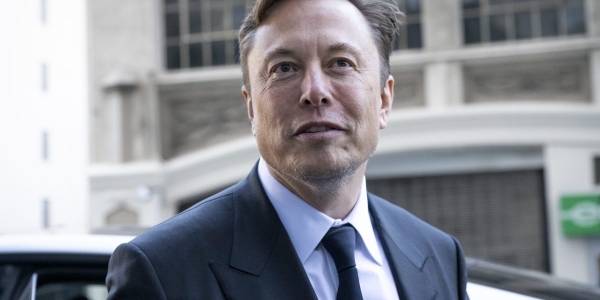
America’s “inability to build things” is crippling it, the economics writer Noah Smith wrote in a blog published on Monday. The “things” he’s referring to are housing, transit, solar power, transmission lines, semiconductor production, you name it. They’re being stalled because of permitting and development rules in particular but the NIMBY (or “not-in-my-backyard”) crew in general. Smith is a well-known economics commentator, but his “bit of a rant” struck a chord with many on Twitter, including its CEO, Elon Musk.
Smith’s blog post, on his personal Substack, stresses that America used to be unwilling to spend on building things, but now it’s worse. We spend money now, he wrote, but that hasn’t equated to more things getting built. The U.S. doesn’t have too much trouble garnering financial capital, but projects and developments are hindered by “local interests who exploit a thicket of veto points to preserve the built environment of the 1970s.”
Smith, who has a doctorate in economics and has taught at Stony Brook University but has mainly written on macroeconomics, with a stint at Bloomberg Opinion among his credits, offered a diagnosis of American decline that struck a chord with the world’s richest man. (Musk himself has a sizable fan base despite his eccentricities, likely because he’s a forward-looking billionaire who promises to escape this sense of stagnation.) Smith identifies the “build-nothing” mentality as a “shadow subsidy” to make up for the fact that real incomes have stagnated since the 1970s, including a few periods when they flatlined. In short, America would rather buy off the current class of homeowners than make any painful economic sacrifices.
Smith’s Twitter thread promoting his blog post prompted hundreds of responses, including a tweet from Musk: “We have made large construction projects almost illegal.” And Musk has had some run-ins with NIMBYs. In 2018, his plans for a private underground transit system stalled after two Los Angeles neighborhood groups filed an environmental lawsuit against the Boring Company (the case settled). He’s also run into development issues in Europe that may not necessarily qualify as NIMBYism, with the rolling out of a Tesla gigafactory being halted after environmental activists debated its potential impact.
To start, Smith gave the example of the University of California at Berkeley’s plan to build student housing. The proposal was blocked by a California appeals court last week, citing the state’s Environmental Quality Act and ruling that students could potentially be seen as an environmental impact. To which California Gov. Gavin Newsom responded: “Our CEQA process is clearly broken when a few wealthy Berkeley homeowners can block desperately needed student housing…California cannot afford to be held hostage by NIMBYs.”
Similar situations, Smith writes, should be expected to unfold all over the country but especially in California because of the state’s push to build more affordable housing. But Smith argues that California’s environmental review law will act as a “last line of defense” for those that oppose the development of affordable, or even just more, housing. All the while, housing just isn’t being built across the country, he writes.
As for transit and green energy, both have funds allocated to developments but aren’t using that money to build. Green energy developments are affected by two major factors, in Smith’s view: the Biden administration’s “crackdown on sourcing from China” as well as “a wave of NIMBY opposition to the projects.” He cites a recent Wall Street Journal report that the actual number of green projects has plummeted despite the allocation of $400 billion for them in the Inflation Reduction Act.
Smith also argues that NIMBYs hold up transmission lines, which affects America’s ability to build renewable energy. As for semiconductors, despite plans to build a plant in Arizona, the U.S. “can’t seem to build much,” Smith says, because it’s running into major cost issues.
“America is spending all the money, and things still aren’t getting built, because of the country’s broken system of permitting, land use, and development,” Smith writes, again stressing that money is not the same thing as physical stuff, which has been keenly felt with the highest inflation in four decades as too much money chases too few goods.
He argues that in the U.S. people are provided with a kind of subsidy to keep their world from changing. If you own a home, you can attempt to restrict local housing supply, preserve the environment you’re used to, and keep streets quiet and uncrowded. Smith is far from the only commentator to make this argument. For instance, The Atlantic’s Annie Lowrey wrote just weeks ago, “Everything is about the housing market,” with high urban rents making “life worse for everyone.”
The country can no longer afford this form of “shadow subsidy,” Smith argues. If America continues on this path, standing by the “build-nothing” mindset, then the middle class will slip into “genteel poverty” and America will lose its leading position in the global economy, he claimed indirectly, albeit poetically: “Someone else will build the future on the bones of our civilization.”
He urged America to slash the “thicket of red tape” around development, and it seems the world’s richest man agrees.
Smith did not immediately respond to Fortune’s request for comment.
